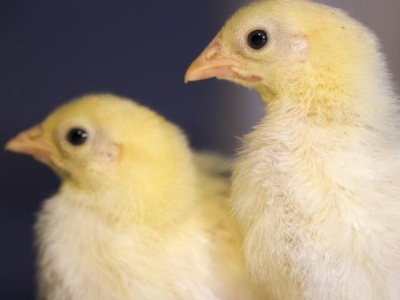Genes behind social behavior in chickens identified

Genes previously linked to nervous system now also linked to social behaviors.
Some chickens are more likely than others to seek the company of other chickens.. Photo credit: Karin Söderlund Leifler/Linköping University
Five genes that affect sociality-related behavior in chickens have been identified by researchers at Linköping University in Sweden. Several of the genes have been previously linked to nervous system function or behavior. The new study, which is published in Genetics, is the first that assigns these genes a role in sociality.
Sociality and social behavior cover a wide range of behaviors. Dogs seeking human contact and honeybees using complex waggle dances to exchange information on where to find good food sources are two examples from the animal world, but what actually governs social behavior?
“By identifying the genes responsible for the variation in such sociality, we can understand how sociality is formed and how social behavior is controlled at a genetic level. Why some people or animals are more gregarious by nature and others more independent is just one such example,” said Dominic Wright, senior lecturer at the Linköping department of physics, chemistry and biology (IFM) who led the study.
To assess this, the researchers used a cross between wild and domesticated chickens. The AVIAN research group at Linköping is one of the few groups in the world with a breeding population of Red Junglefowl, the wild ancestor of domesticated poultry. For 8,000 years, humans have selected the individuals with desirable traits and bred them, which is known as domestication. As a result, today’s poultry and the original wild fowl differ widely in their social behaviors. For example, Red Junglefowl typically take longer to approach other birds but spend more time with them when they do.
By crossing the domesticated and wild fowl for several generations, the researchers obtained chickens that exhibited a large range of social behaviors.
The researchers measured sociality by placing chickens in a novel environment (a large box) and observing how likely they were to seek contact with other chickens. A more social chicken approaches the others more rapidly and spends less time exploring the new surroundings. The same behavior is also displayed by more anxious chickens. The investigators measured gene expression in the hypothalamus, one of several regions in the brain involved in the regulation of social behavior.
By correlating behavior, gene expression and genetic variants, the researchers identified five genes that seem to control aspects of this social behavior.
“Although these genes had been implicated with behavior or nervous system function previously, this is the first time they have been shown to control sociality also. We also found that several of the genes affect both sociality and anxiety in the chickens,” Wright said.
Có thể bạn quan tâm
 Dietary curcumin may boost egg quality, hen health
Dietary curcumin may boost egg quality, hen health Adding levels of curcumin to the diets of laying hens may improve both hen immune functioning and the quality of eggs laid, say researchers.
 Improving breeder performance with trace minerals
Improving breeder performance with trace minerals Nutritionists have the responsibility to ensure the health and productivity of the flock in addition to the quality of the egg and resulting chick.
 US poultry vet shares key factors to control NE
US poultry vet shares key factors to control NE Keeping broilers healthy and free of the intestinal disease necrotic enteritis requires protection against gut damage, prevention of clostridial growth and main